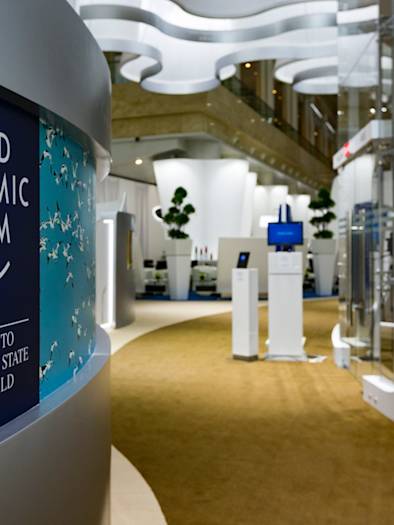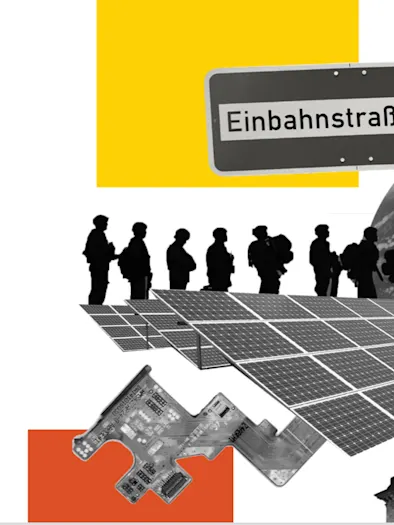
Should old acquaintance be forgot?
H+K Strategies European public affairs chair Thomas Tindemans on what’s next following the great departure
Last night in Brussels, mourning EU officials sang Auld Lang Syne alongside melancholic Brits. On Brussels’ iconic Grand Place, the colours of the Union Jack illuminated the medieval façades as crowds congregated around a red phone booth and black taxi. The sadness was palpable, but the anger was spent.
The Withdrawal Agreement that takes the UK out of the EU “in an orderly fashion” has been duly ratified. At 23:00 GMT on Friday 31 January 2020 Brexit is finally happening, a full three-and-a-half years after the referendum of 23 June 2016 that delivered a narrow majority in favour of the UK’s departure.
From an EU perspective, the UK will become a “third country” at that exact moment. The UK will no longer take part in EU law- and policymaking. But it will continue to abide by EU law, rules and regulations – at least until the end of the transition period (31 December 2020). This means that, for the coming 11 months at least, the UK will remain a part of the EU’s Internal Market and Customs Union but without a voice in the decision-making process that governs its free movement of goods, services, capitals and people.
Not much will change immediately for businesses and commerce across the UK or indeed the EU’s 27 Member States. Goods and services will continue to flow across the Channel without restriction. No barriers to trade will be erected in this freest of free markets. The practical consequences of Brexit for business will only hit products and services and people from 2021 onwards.
Yet politically, the break-up sends shockwaves of uncertainty reverberating throughout government. The UK has abandoned its influence on the rules, standards and norms that affect roughly half of its total exports. No British minister will attend EU Council meetings. No MEP will represent the UK in the European Parliament. No Briton will count among the college of Commissioners. And no British official will sit in the hundreds of committees that, on a daily basis, implement technical details on product safety, consumer protection, environmental impact, data privacy and the many other aspects of a sophisticated modern economy. The UK government bodies that used to have first-hand access to inside information will now have to wait patiently out in the cold while the details of the decisions that affect them are being taken inside the clubhouse. In order to defend their interests, the British will have to lobby the Commission, EU Member States and MEPs from without, waiting patiently in line to gain access, just like any other supplicant third country.
Companies, that previously relied on the UK government to guide and inform them in detail on the evolution of EU regulation and policy, would do well to seek new sources of intelligence to stay abreast of developments that matter greatly to them.
Meanwhile, the UK is supposed to negotiate the free trade agreement that will establish its long-term regulatory and economic relationship with the EU in just 11 months. That may seem an impossibly short timeframe, even if Mr. Johnson has waxed lyrical about the ease of future negotiations. Commission president Ursula von der Leyen has been unambiguous on the trade off, as she recently reiterated to the European Parliament: “the more the UK does commit to uphold our standards for social protection and workers’ rights, our guarantees for the environment, and other standards and rules ensuring fair competition, the closer and better their access to the Single Market”. That’s Eurospeak for the EU restricting market access with tariffs, customs controls and the other trade defence instruments in its arsenal as soon as the UK decides to use its much vaunted “full sovereignty” to adopt diverging legislation and rules.
For companies trading between the UK and EU, the scope of the free trade negotiations is important: will their products or services be covered? Will they enjoy zero tariffs and quotas? Or will they fall outside of the deal and be subject to WTO tariffs and other sanitary, phytosanitary or regulatory restrictions? What status will their employees from EU countries have in the UK?
The uncertainty surrounding both scope and outcome suggests that companies would do well to plan for the worst-case scenario of a narrow- or no-deal outcome. It won’t be plain sailing. Past negotiations have foundered on the rocks of disagreement over seemingly simple trade-offs between exports of fish and imported tomatoes. Consequently, divorce agreement notwithstanding, a hard Brexit at the end of 2020 remains a definite possibility. And let’s not forget that, not only do the EU and the UK have to reach an agreement, but that agreement will have to be ratified, possibly by as many as 38 national and regional parliaments, depending on the breadth and depth of areas covered. Each of these assemblies can wield a scuppering veto. Perilous waters indeed.
To avoid surprises, companies will do well to closely monitor the negotiations and promptly convey their concerns or suggestions to negotiators on both sides. If points need to be raised, they must be communicated in clear and helpful language, be underpinned by facts, and delivered in a format that facilitates swift adoption by decision makers.
After Wednesday’s emotional goodbyes to British MEPs and the sad spectacle of the last British minister leaving their last EU Council, the real-life consequences of Brexit for business now need to be tackled. Intoning Auld Lang Syne may be balm for the soul, but should old acquaintance not be forgot, London and Brussels still have a hell of a job to do to sort out all the practicalities in the 11 short months ahead.







